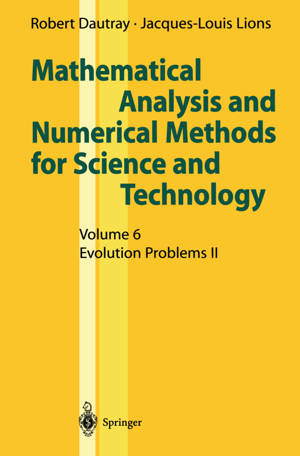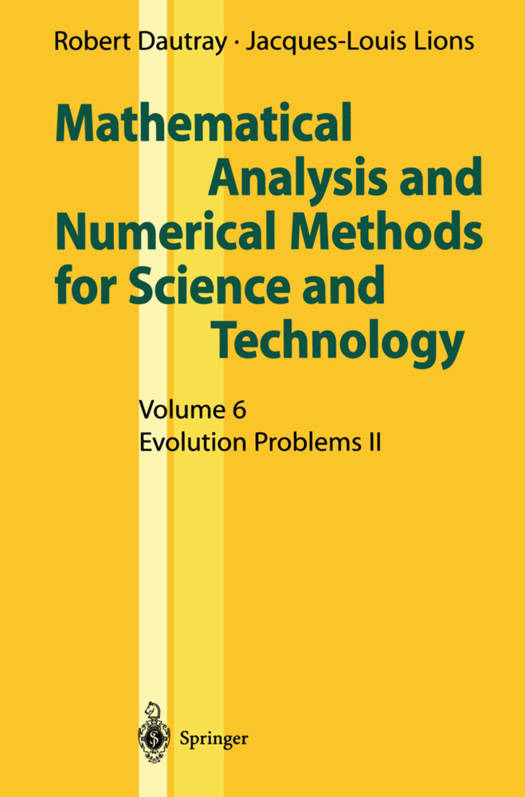
- Afhalen na 1 uur in een winkel met voorraad
- Gratis thuislevering in België vanaf € 30
- Ruim aanbod met 7 miljoen producten
- Afhalen na 1 uur in een winkel met voorraad
- Gratis thuislevering in België vanaf € 30
- Ruim aanbod met 7 miljoen producten
Zoeken
Mathematical Analysis and Numerical Methods for Science and Technology
Volume 6 Evolution Problems II
Robert Dautray, Jacques-Louis Lions
Paperback | Engels
€ 72,59
+ 145 punten
Uitvoering
Omschrijving
The object ofthis chapter is to present a certain number ofresults on the linearised Navier-Stokes equations. The Navier-Stokes equations, which describe the motion of a viscous, incompressible fluid were introduced already, from the physical point of view, in §1 of Chap. IA. These equations are nonlinear. We study here the equations that emerge on linearisation from the solution (u = 0, p = 0). This is an interesting exercise in its own right. It corresponds to the case of a very slow flow, and also prepares the way for the study of the complete Navier-Stokes equations. This Chap. XIX is made up of two parts, devoted respectively to linearised stationary equations (or Stokes' problem), and to linearised evolution equations. Questions of existence, uniqueness, and regularity of solutions are considered from the variational point of view, making use of general results proved elsewhere. The functional spaces introduced for this purpose are themselves of interest and are therefore studied comprehensively.
Specificaties
Betrokkenen
- Auteur(s):
- Vertaler(s):
- Uitgeverij:
Inhoud
- Aantal bladzijden:
- 486
- Taal:
- Engels
Eigenschappen
- Productcode (EAN):
- 9783540661023
- Verschijningsdatum:
- 23/11/1999
- Uitvoering:
- Paperback
- Formaat:
- Trade paperback (VS)
- Afmetingen:
- 156 mm x 234 mm
- Gewicht:
- 698 g

Alleen bij Standaard Boekhandel
+ 145 punten op je klantenkaart van Standaard Boekhandel
Beoordelingen
We publiceren alleen reviews die voldoen aan de voorwaarden voor reviews. Bekijk onze voorwaarden voor reviews.








